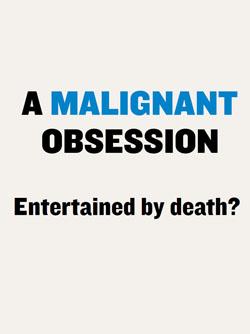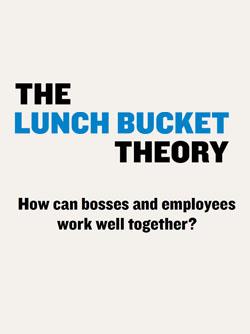Parliament and the "Right to Die"?
An ongoing debate continues to brew in the Parliament building of Great Britain in the United Kingdom. It involves the “right to die” and goes back as far as 2006. On July 28, 2014, the House of Lords conducted the second reading of the bill put forth by Lord Falconer of Thoroton, which lasted some ten hours. The bill went forward to a committee for further review, which is only the beginning of a long process that could see Royal Assent happening in the not-too-distant future. Assisted suicide continues to gain traction in various parts of the world, but what exactly would be the ramifications if this bill receives the “Royal stamp of approval”?
The essence of the “Right to Die” bill gives license to individuals who are mentally competent but terminally ill, or suffering from chronic, unbearable physical pain to choose to have a doctor or family member assist them in dying according to the “Dignity With Dying” movement, which is actively promoting the concept of assisted dying. An opposition group, “Care Not Killing,” is lobbying against the passage of the “Right to Die” bill in favour of better methods of palliative care, as their name implies.
Behind Closed Doors
In the U.K. assisted dying is not legal, yet instances of it are known to have occurred. Sabine Michalowski, Law Professor at the University of Essex, is in favour of some degree of legalisation to allow “assisted dying.” In an Al Jazeera interview, she explains how attempted suicides are happening behind closed doors. She states how this is seen by some as a viable reason to allow “compassionate assistance to die” (Aljazeera.com, “Who decides when it is time to die?” January 31, 2014), but simply making something legal in a court of law does not necessarily change inherent moral and ethical facts.
Categories of Dying
The Al Jazeera broadcast goes on to state that “assisted dying,” where terminally ill patients have the right to self-administer life-ending drugs, is already allowed in four U.S. states. “Assisted suicide,” where an individual is not dying but suffering chronic pain or is disabled, is allowed in Switzerland. “Voluntary euthanasia,” wherein a doctor is allowed to administer life-ending medication, is allowed in Belgium and the Netherlands. Lastly, “euthanasia” is when a third-party administers life-ending medication, sometimes without the consent of the individual.
Dignitas, the Swiss company, actively takes part in the termination of life for those with “an illness which will lead inevitably to death, unendurable pain or an unendurable disability,” according to their Web site. They carry out the instructions of terminally ill persons, accompanied by a family member or friend, to end their life. For those who use the Dignitas organisation to perform the assisted suicide, there is risk. At this time, the laws in the U.K. state that assisting others with suicide is not allowed. In fact, prosecution for being an accomplice to homicide—murder—can be the result; however, to date, no one has been prosecuted for this capital offence.
Change Is in the Air
In Quebec, Canada, a long-standing opponent to assisted dying, Dr. Catherine Ferrier, a geriatric specialist and the president of the Physicians Alliance Against Euthanasia, stated emphatically that she believes politicians were trying to institutionalise “killing patients and calling it healthcare” (ibid.). On June 5, 2014, Bill 52 was passed which now allows for a patient in Quebec to choose to die (CBC.ca, “Quebec passes landmark end-of-life care bill,” June 5, 2014).
How long before the British Parliament follows this slippery slope, opening the door to a dramatic and far-reaching devaluation of human life? If death is considered a “human right,” then where will the line be drawn to define what constitutes murder and what does not? Already, as of January 2014, laws in Belgium have made legal the decision of terminally ill children, as well as those children who have chronic unbearable physical pain, to decide to end their own life. A BBC News article reveals how Dr. Gerlant van Berlaer, a paediatrician at U.Z. Hospital Brussels, views youth euthanasia: “We are not playing God—these are lives that will end anyway” (BBC.co.uk, “Belgium divided on euthanasia for children,” January 8, 2014).
Abortion is a tragic and sad result of mankind thinking it can determine for itself what is right and what is wrong. Not that long ago, abortion was unthinkable to most in Western society. And just as attitudes toward abortion have changed dramatically, will the time come when those who are in chronic pain or are terminally ill, whether young or old, may also be treated as just so much insignificant tissue? Humanity seems intent on taking matters of life and death into its own morally ill-equipped hands.
Vital Moral Guidance
What does the Bible have to say about the matter of life and death? Is life or death a human right we possess? Where can we find the answers?
Ecclesiastes 8:6–8 tells us, “Because for every matter there is a time and judgment, though the misery of man increases greatly. For he does not know what will happen; so who can tell him when it will occur? No one has power over the spirit to retain the spirit, and no one has power in the day of death.”
The Apostle Paul, in explaining to the Athenians about the true God, said, “Nor is He worshiped with men’s hands, as though He needed anything, since He gives to all life, breath, and all things” (Acts 17:25). God has created us and given us life. God is the one who is in control of when we die. We should not usurp from God His power to bring about or allow death.
This fact of life remains: “…it is appointed for men to die once, but after this the judgment” (Hebrews 9:27). God gave the command, “You shall not murder” (Exodus 20:13) to protect the sanctity and value of human life. This command includes “self-murder” otherwise known as suicide. Those assisting others in suicide become accomplices to murder in the eyes of Almighty God!
An Amazing Future Awaits!
Every human being is precious in God’s sight and He has an incredible plan in store, but we must choose to live. “I call heaven and earth as witnesses today against you, that I have set before you life and death, blessing and cursing; therefore choose life, that both you and your descendants may live” (Deuteronomy 30:19). Please request our inspiring booklet, Your Ultimate Destiny. Every human has the right to seek life to the full, though it may require courage to do so.






